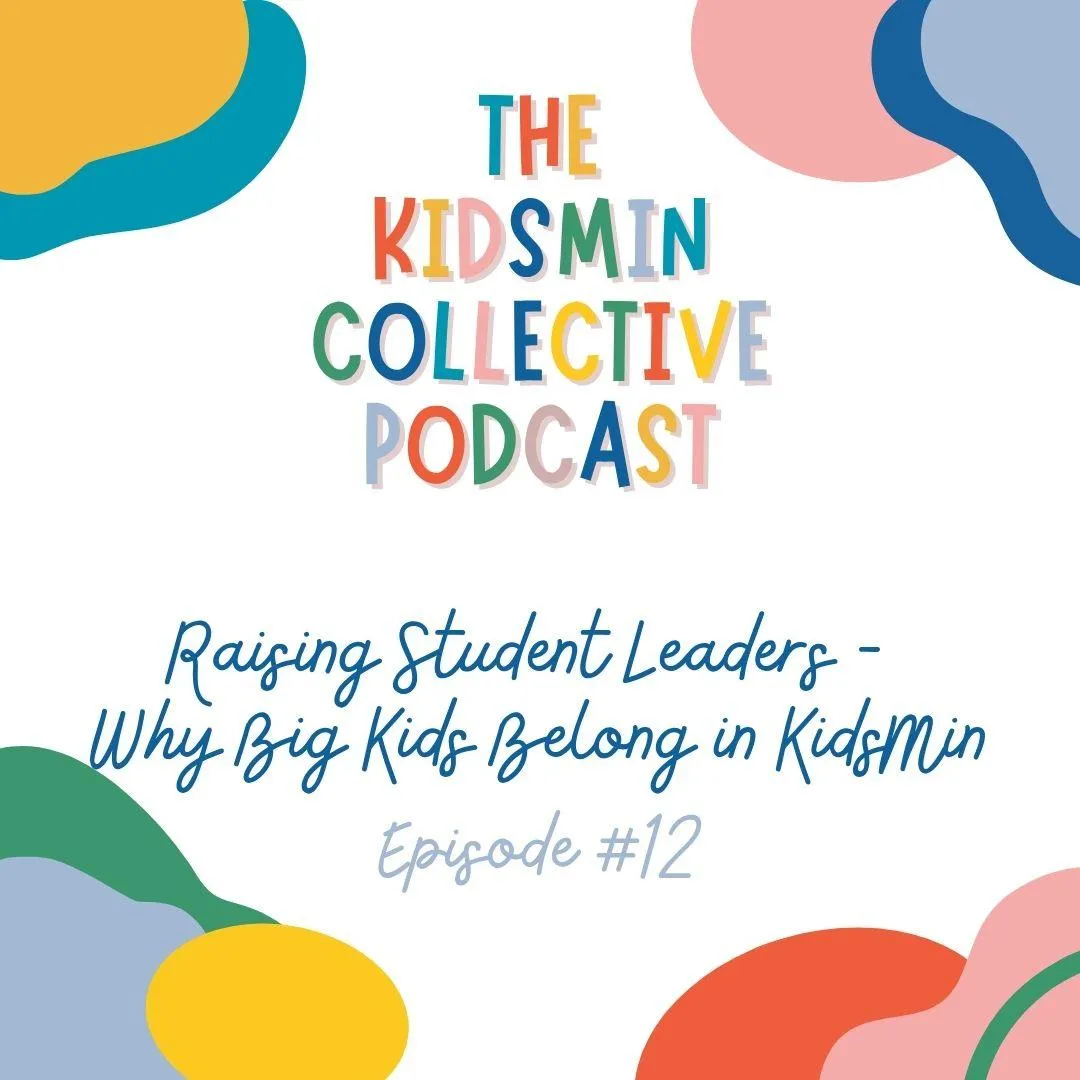
Episode #12: Raising Student Leaders - Why Big Kids Belong in KidsMin
Think back to your own childhood—who did you look up to?
Maybe it was a cool fourth grader when you were in first grade. Maybe it was a teenager at church who sang on stage and played guitar. Maybe there was an adult you admired. Whoever it was, there’s a good chance they left a mark on your life simply because they were a little further along and willing to be seen.
That’s the power of student leaders in children’s ministry.
In this week’s podcast, we’re talking about why “big kids” belong in KidsMin—not just as helpers, but as key players in your discipleship strategy and the future of your church.
Why Student Leaders Matter
Every child is watching someone. Preschoolers look up to elementary students. Elementary kids admire those in the youth group. And often, these “big kids” have more influence than we give them credit for. When they lead, younger children follow—not just with behavior, but with enthusiasm.
That’s why involving student leaders in your ministry isn't just helpful—it’s essential.
By inviting student leaders into your KidsMin spaces, you’re:
Creating discipleship layers that go beyond adult-to-child interactions.
Modeling community and leadership for all age groups.
Training future leaders while they’re still young and moldable.
Start with the Right Structure
Before diving in, it’s important to define clear age boundaries. For example:
A 6th grader serving in a 5th grade classroom? Likely too close in age.
A 10th grader helping in 2nd grade? Much better dynamic.
Think about maturity, age gaps, and relational dynamics—and then build guidelines that make sense for your church. If you’re not sure where to start, I’d love to help you map it out.
Give Them Ownership, Not Just a Title
One of the biggest mistakes we make is asking student leaders to "just help." Instead, give them something to own.
Examples include:
Prepping and leading the craft
Running a game or story activity
Leading worship (whether on stage or in a small group)
Assisting with transitions or classroom routines
Ownership leads to engagement—and it teaches them to lead with responsibility, confidence, and heart.
Discipleship Happens at Every Level
This isn’t about checking a box. Student leadership in KidsMin is discipleship in action.
As a ministry leader, you’re discipling your lead volunteers, who then disciple student leaders, who then disciple younger children. It’s a beautiful, biblical ripple effect. And student leaders learn:
Accountability and flexibility
How to bring Scripture into conversation
What it looks like to pray over a ministry
How to lead even when things don’t go perfectly
When we raise student leaders, we’re raising disciple makers.
Don’t Wait Until They’re Adults
We often expect adults to show up ready to lead and serve, but if they’ve never practiced it, how will they know how?
By providing consistent opportunities to lead in middle and high school, we teach students what serving looks like—and we normalize spiritual responsibility at a young age. That way, when they step into adulthood, leading in church isn’t foreign. It’s familiar.
Practical Tips to Get Started
Train in short bursts. Pull student leaders aside during service for quick, relevant training moments.
Cast vision to your adult volunteers. Help them see student leaders not as assistants, but as future disciple makers.
Give roles based on skill and passion. Not every student is wired the same—some may shine in crafts, others in tech or worship.
Start small. Scale intentionally. Begin with one or two student leaders. Evaluate. Adjust. Grow.
And remember: kids with challenging behaviors or special needs often respond uniquely well to these “big kid” leaders. One engaged student leader can make a significant difference for a child who struggles with transitions or peer interaction.
Let’s Raise Them Up
Our goal isn’t just to fill classroom roles—it’s to nurture future leaders of the Church. Let’s not wait until students turn 18 to expect maturity and ownership. Let’s start now.
Give them a seat at the table. Let them lead something meaningful. And watch how God uses them to shape both the ministry and themselves.
👣 Ready to start building a student leadership structure in your KidsMin? I’d love to help you create a plan that fits your church’s context.
📞 Book a call with me here
🌐 Visit the website
